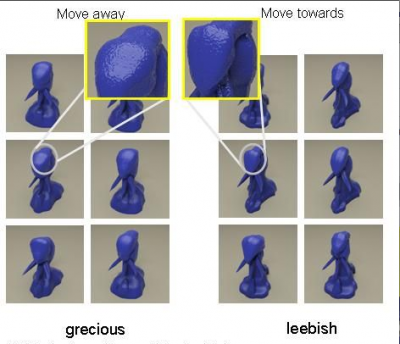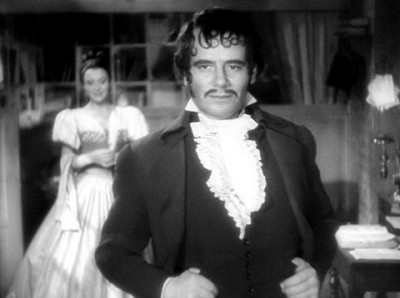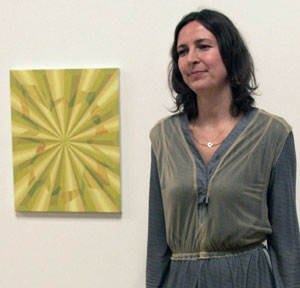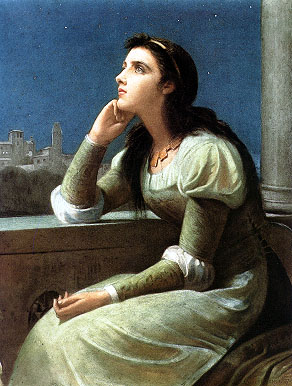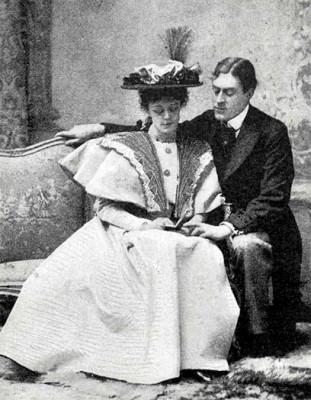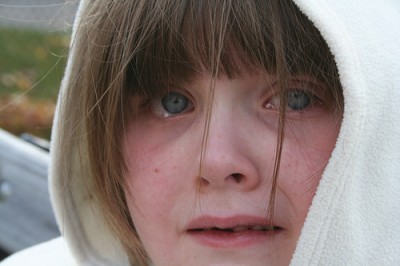Marilla came briskly forward as Matthew opened the door. But when her eyes fell of the odd little figure in the stiff, ugly dress, with the long braids of red hair and the eager, luminous eyes, she stopped short in amazement.
“Matthew Cuthbert, who’s that?” she ejaculated. “Where is the boy?”
“There wasn’t any boy,” said Matthew wretchedly. “There was only her.”
He nodded at the child, remembering that he had never even asked her name.
“No boy! But there must have been a boy,” insisted Marilla. “We sent word to Mrs. Spencer to bring a boy.”
“Well, she didn’t. She brought her. I asked the station-master. And I had to bring her home. She couldn’t be left there, no matter where the mistake had come in.”
“Well, this is a pretty piece of business!” ejaculated Marilla.
During this dialogue the child had remained silent, her eyes roving from one to the other, all the animation fading out of her face. Suddenly she seemed to grasp the full meaning of what had been said. Dropping her precious carpet-bag she sprang forward a step and clasped her hands.
“You don’t want me!” she cried. “You don’t want me because I’m not a boy! I might have expected it. Nobody ever did want me. I might have known it was all too beautiful to last. I might have known nobody really did want me. Oh, what shall I do? I’m going to burst into tears!”
Burst into tears she did. Sitting down on a chair by the table, flinging her arms out upon it, and burying her face in them, she proceeded to cry stormily. Marilla and Matthew looked at each other deprecatingly across the stove. Neither of them knew what to say or do. Finally Marilla stepped lamely into the breach.
“Well, well, there’s no need to cry so about it.”
“Yes, there is need!” The child raised her head quickly, revealing a tear-stained face and trembling lips. “You would cry, too, if you were an orphan and had come to a place you thought was going to be home and found that they didn’t want you because you weren’t a boy. Oh, this is the most tragical thing that ever happened to me!”
Something like a reluctant smile, rather rusty from long disuse, mellowed Marilla’s grim expression.
“Well, don’t cry any more. We’re not going to turn you out-of-doors to-night. You’ll have to stay here until we investigate this affair. What’s your name?”
The child hesitated for a moment.
“Will you please call me Cordelia?” she said eagerly.
“Call you Cordelia? Is that your name?”
“No-o-o, it’s not exactly my name, but I would love to be called Cordelia. It’s such a perfectly elegant name.”
“I don’t know what on earth you mean. If Cordelia isn’t your name, what is?”
“Anne Shirley,” reluctantly faltered forth the owner of that name, “but, oh, please do call me Cordelia. It can’t matter much to you what you call me if I’m only going to be here a little while, can it? And Anne is such an unromantic name.”
“Unromantic fiddlesticks!” said the unsympathetic Marilla. “Anne is a real good plain sensible name. You’ve no need to be ashamed of it.”
“Oh, I’m not ashamed of it,” explained Anne, “only I like Cordelia better. I’ve always imagined that my name was Cordelia–at least, I always have of late years. When I was young I used to imagine it was Geraldine, but I like Cordelia better now. But if you call me Anne please call me Anne spelled with an E.”
“What difference does it make how it’s spelled?” asked Marilla with another rusty smile as she picked up the teapot.
“Oh, it makes such a difference. It looks so much nicer. When you hear a name pronounced can’t you always see it in your mind, just as if it was printed out? I can; and A-n-n looks dreadful, but A-n-n-e looks so much more distinguished. If you’ll only call me Anne spelled with an E I shall try to reconcile myself to not being called Cordelia.”
—Lucy Maud Montgomery (1874-1942), Anne of Green Gables (1908), ch. 3

